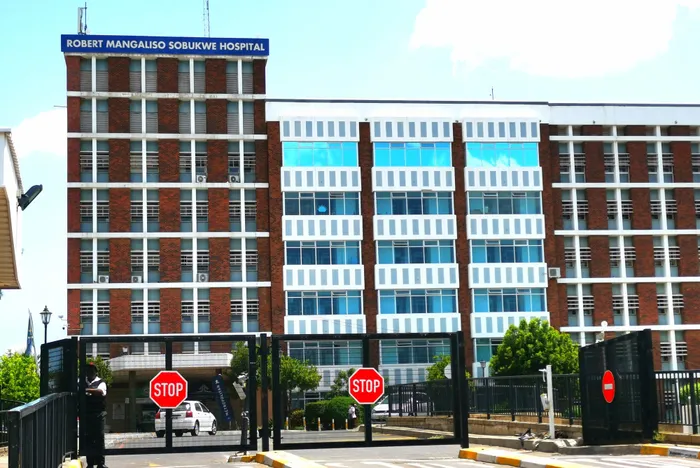Demand for action as Northern Cape surgery backlog tops 6,500

The Robert Mangaliso Sobukwe Hospital in Kimberley.
Image: File picture
THE DEMOCRATIC Alliance (DA) has called on the Northern Cape Department of Health to provide quarterly reports on the province’s growing surgery backlog, which currently stands at 6,518 cases.
The party argues that transparency and regular updates are necessary to ensure that the backlog is effectively managed and does not continue to affect the quality of life of thousands of patients.
During a recent provincial legislature session, Health MEC Maruping Lekwene revealed the current breakdown of the backlog:
- Orthopaedics: 1,200
- Oncological Surgery: 200
- Neurosurgery: 190
- General Surgery: 425
- Urology: 465
- Ear, Nose and Throat: 975
- Ophthalmology: 2,694 (including 2,060 cataract cases)
The backlog has seen significant fluctuations over the past two years. In May 2023, the waiting list stood at 4,000 cases but had doubled to 8,621 by December of the same year. While the numbers have declined slightly, the DA argues that the backlog remains “unacceptably high” and will take years to reduce to a manageable level.
Impact on Patients
Patients on the waiting list often experience severe consequences due to surgery delays. Many conditions worsen over time, leading to increased pain, disability, and even life-threatening complications. The DA notes that some patients are forced to leave their jobs while awaiting surgery, adding financial strain to their already challenging circumstances.
“Delayed surgery violates the right to health care and robs patients of the opportunity for full recovery,” the DA stated in a press release. “This issue must be treated as a priority, and factors contributing to the backlog - such as staff shortages, infrastructure challenges, and a lack of patient transport - must be addressed urgently.”
Call for Transparency and Action
The DA has submitted a formal request for the Health Department to include surgery backlog statistics in its quarterly reports. The party believes that regular updates will help track the province’s progress in addressing the issue and serve as an early warning system should the backlog begin to increase again.
Additionally, the DA has called for the department to follow through on its promise to recruit doctors and nurses from other provinces to assist in reducing the backlog. This commitment was made in the previous financial year but has yet to be fully implemented.
“No one’s life should be put on hold due to an insurmountable surgery backlog,” the party stated. “We will continue to hold the department accountable to ensure that no patient suffers unnecessarily due to administrative or logistical failures.”
Department of Health Responds
The Northern Cape Department of Health responded to the DA’s concerns, emphasising that addressing the surgical backlog remains a priority, particularly at the Robert Mangaliso Sobukwe Hospital (RMSH) in Kimberley.
The department highlighted the need for a co-ordinated effort across various health care levels, including district health services, regional hospitals, and, where possible, the private sector.
According to the department, several innovative interventions have been implemented to improve surgical outputs, such as working with the private sector to increase theatre capacity. A partnership with Sishen Iron Ore Company (SIOC) has helped improve minor ophthalmology procedures, while the implementation of “surgical blitzes” by contracting private nurses has increased output at RMSH.
The department also acknowledged challenges in recruiting sufficient theatre nurses and noted that recruitment efforts are ongoing. RMSH currently operates eight theatres, but not all are fully functional due to staffing shortages.
“We are committed to filling available and funded posts across the province to improve health-care services, especially at RMSH, which serves as the only tertiary hospital in the Northern Cape,” the department said in a statement.
The department also confirmed that it is focused on capacitating district hospitals' operating theatres to handle minor surgeries. This, the department hopes, will alleviate the pressure on RMSH and help reduce the surgical backlog over time. However, the department noted that setting a specific target for backlog reduction is difficult due to the ongoing influx of new cases.
The department concluded by stressing the importance of reporting and accountability in its operations, reaffirming its commitment to transparency and improved service delivery.
Related Topics: